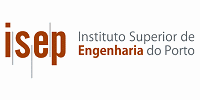Topics of interest (include, but are not limited to)
Engineering Ethics
• Embedding Ethics in Engineering Education
• Teaching Codes of Ethics
• Plagiarism
• Credits, Rights, and Responsibilities of Dissertation Advisor
• Reverse Engineering
• Role of Engineers in Society
• Ethics and Risk Assessment
ICT in Engineering Education
• Computers in Engineering Education
• Mobile Devices in Education
• Human-Computer Interaction
• Web Interface Design
• Collaborative Environments and Tools
• Assessment Tools
• E-learning in Engineering Education
• Multimedia Contents for e/b/m-learning
• Augmented and Virtual Reality
• Serious Games
Continuing Engineering Education (CEE)
• Joint academic-industry initiatives in CEE
• Curricula Development in Engineering Degrees
• Role of Professional and Technical Societies in CEE
• Role of Government in CEE
• CEE programs and initiatives
• Lifelong Learning in Engineering
• Impact of Educational and Scientific Research in Engineering Programs
• Informal and non-formal Learning in Engineering
• Non-traditional students in Engineering
• Economical aspects of CEE
• Training in the workplace as part of CEE
• The contributing role of CEE for job creation in a global economic crisis
Tools to Develop Higher Order Thinking Skills
• Concept Mapping for Learning and Assessment
• Self-regulated Learning Strategies
• Problem solving and Creativity
• Designing Courses for Higher Order Thinking
• Using Online Tools to Facilitate Learning
• Communication Skills for Technical Thinkers
• Information Literacy and Our Tech-savvy Students
• Developing Skeptical Thinkers
Mathematics in Engineering Education
• Logic Knowledge and Mathematical Competences in Engineering
• Computational Tools for Teaching Mathematics in Engineering
• Use of Mathematical Models and Simulators in Engineering Education
• Case Studies



